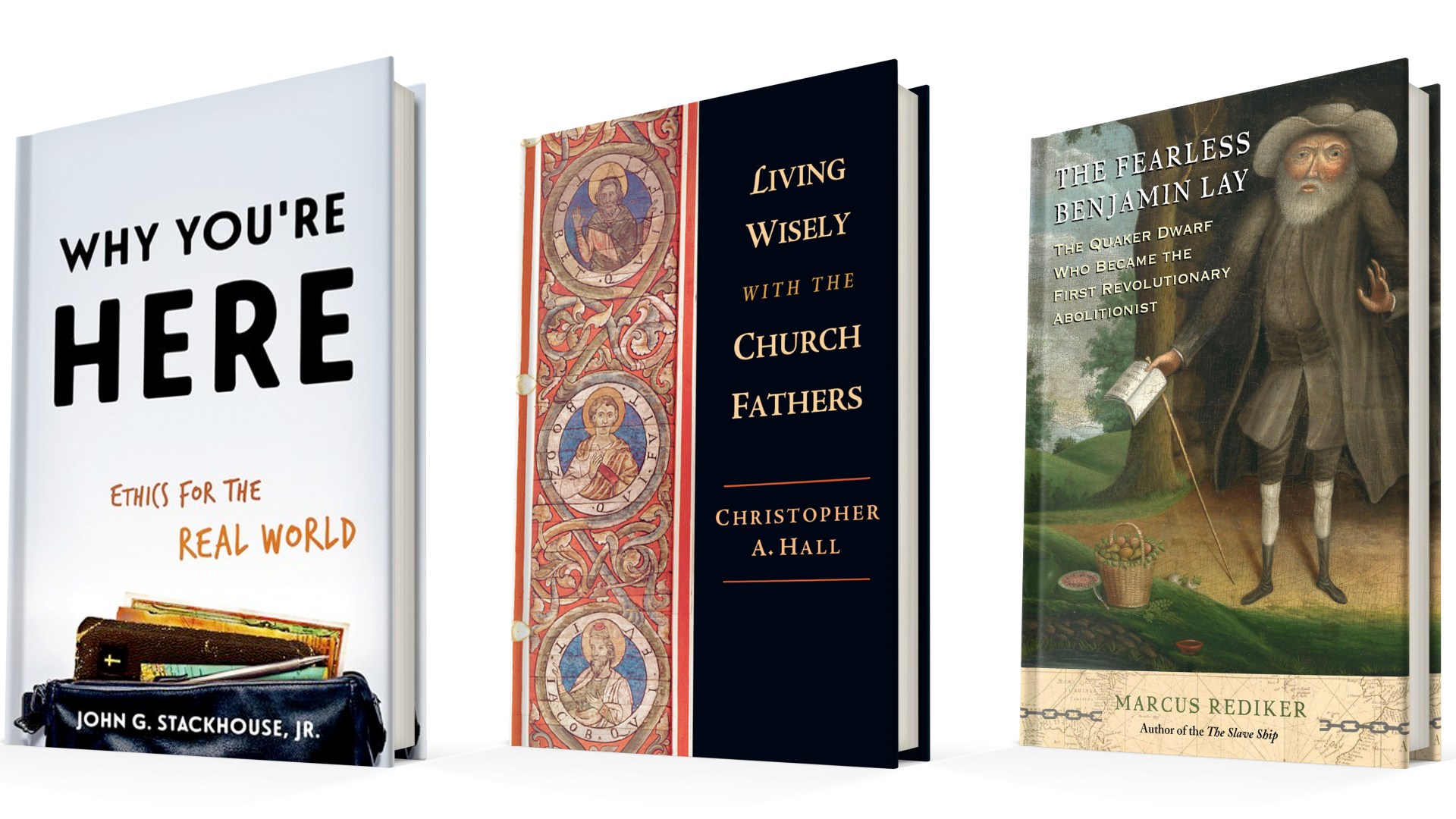Why You’re Here: Ethics for the Real World
John G. Stackhouse Jr. (Oxford University Press)
“This book,” Stackhouse writes, “is about how to live as God intended us to live. It actually, and without irony, offers an answer to the question: What is the meaning of life?” Against those who reduce the concept of Christian vocation to excellence in the workplace or service to the church, Stackhouse speaks of “the divine calling to every person to do God’s will in every mode and form of human life: public as well as private, secular as well as religious, juvenile as well as adult, corporate as well as individual, female as well as male.”
Living Wisely with the Church Fathers
Christopher A. Hall (IVP Academic)
Of course, if you’re looking for guidance on how to pursue God’s calling in various domains, you could do much worse than consulting the earliest Christian leaders. This latest volume from Christopher Hall, director of the Renovaré Institute for Christian Spiritual Formation, rounds out a series that included Reading Scripture with the Church Fathers (1998), Learning Theology with the Church Fathers(2002), and Worshiping with the Church Fathers (2009). “How,” Hall asks, “can God’s image bearers learn to live a good life, a life nourished by the values of the kingdom of God, a life of deep and lasting human flourishing, a life filled with love for God and neighbor?”
The Fearless Benjamin Lay: The Quaker Dwarf Who Became the First Revolutionary Abolitionist
Marcus Rediker (Beacon Press)
When William Wilberforce was born, in August 1759, another passionate abolitionist had died only months before. Though small in stature at just over four feet tall, Benjamin Lay could summon ferocious indignation against people who kept other people in bondage—and people who made excuses for this state of affairs. “For a quarter century,” writes biographer Marcus Rediker, “he railed against slavery in one Quaker meeting after another, in and around Philadelphia, confronting slave owners and slave traders with a savage, most un-Quaker-like fury.” The Fearless Benjamin Lay brings vividly to life a near-forgotten figure, derided not only for his physical appearance and eccentric habits but also his unyielding ethical commitments.










